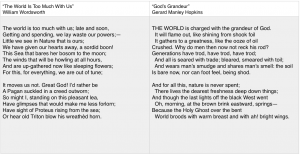In The Interpretation of Dreams, Freud claims that some children who are attached to their stuffed animals or dolls would at one point, wish that they became alive. Speaking on behalf of my childhood-self, I must say that this holds true and that this theory reminds me greatly of my own experience..which I will now share.
My mother once told me that at night, when the clock strikes past twelve and the children are all sleeping, the dolls in the household would come to life. However, if the dolls sensed that even one child was awake, they would retreat back into their lifeless form. (Sounds like Toy Story, yeah?) As a child hearing this, I wanted to witness this magical event, but I could never keep myself awake long enough. Despite this, there were numerous instances where I had awoken in the middle of the night and could have sworn to hear faint murmurs and laughter. The dolls that I had were outside in the living room, one wall and corridor apart from the bedroom. On one particular night, I had awoken again and could hear from the bedroom wall, the same joyful, tiny, laughter and conversation. At this point, one may reason that it was my parents who were watching television outside, but let me assure you, they were not. At that time, we lived in a one-bedroom complex and my parents were already sound asleep next to me. Taking on the adventurous spirit found in most children, I lurked outside, venturing into the living room. I was convinced I would finally be able to “meet” my dolls in person, yet, the voices began to fade into silence as I slowly entered the room. Perhaps it was simply the lack of logical thinking (especially late at night and the influence of my mother’s tale) or memory that caused me to look at the placement of where I had last left my dolls (sitting in a row, backs against the wall, bums on the couch) and notice that one or two of them were out of place. (I will take any possibility of paranormal activity out of this situation, as I simply hate and fear the paranormal) After fixing their posture, I headed back to the bedroom and pretended to sleep. I had hoped to catch my dolls “in action” once more, however, as the time passed, nothing but silent snoring could be heard and I began to fall asleep. I made several more attempts the following days, all of which had failed miserably. The desire to see my dolls alive had then also moved on.
For many individuals, imagination is at its “peak” during their early years. Why must this ability fade as we get older? Of course, more responsibilities are adopted as we age, but this does not mean that we must altogether abandon imagination and creativity. For myself, I simply enjoyed the freedom to create, whether it be a silly character or situation. This passion has transformed into a hobby which drives me to express my imagination through my artwork and graphic novels (enjoyable to any person of age). Perhaps so many of us have trouble interacting with children and keep up with their mentality as we have long forgotten the process of our own imaginative thinking when we were once their age.

